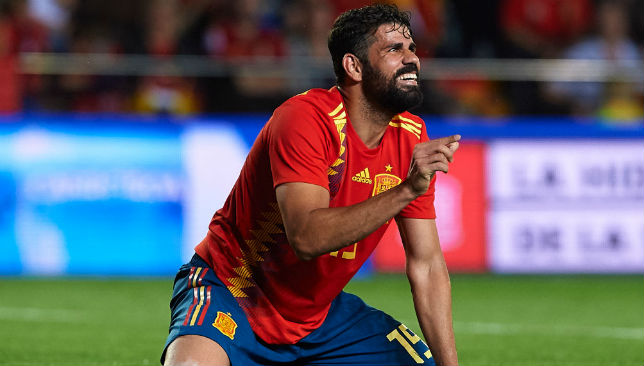
Spain’s slightly concerning 1-1 draw with Switzerland on Sunday night – plenty of possession but little punch – was mitigated by the absence of several important players.
Midfield lynchpin Sergio Busquets will return for the World Cup Finals to add his trademark combination of poise and precision, the centre of the defence will be strengthened by the presence of emblematic skipper Sergio Ramos, and the right-flank raiding of Dani Carvajal will provide a more regular supply of attacking threat from that wing (notwithstanding deputy Alvaro Odriozola’s fine goal).
Perhaps the most important player of all those missing on Sunday, however, was Real Madrid star Isco, who has the chance to play the vital role as the most incisive of all Spain’s gifted midfielders during the upcoming festivities in Russia – and by this weekend’s evidence, that ability will be pivotal to La Roja’s hopes.
The problem for Julen Lopetegui’s men against Switzerland was a simple one: although they produced plenty of silky approach play, too few of their players looked like scoring.
David Silva and Andres Iniesta are both marvellous players, of course, but they are more likely to weave past a couple of defenders on the edge of the box rather than delivering the final killer touch themselves.
Koke is also more effective deeper, creating with the ball and pressing the opposition when it is lost, and Busquets hardly ever contributes in the scoring column.
The frontman position is a real concern, with Diego Costa looking out of shape against Switzerland and Lopetegui appearing to be unconvinced by the other options provided by Rodrigo and Iago Aspas, who are both very inexperienced at international level with a combined total of just 14 caps.

Spain will look good at the World Cup, we know that much. But who will score their goals?
The answer could be Isco, who showed his ability to do just that when he last pulled on the national team jersey, recording a brilliant hat-trick in March’s 6-1 demolition of Argentina to take his overall tally to a respectable 10 goals in 27 international outings.
Isco, of course, is not a striker. He can line up anywhere in midfield, and is likely to occupy one of the wide positions in the front three – probably with Silva on the other side – when the serious action gets underway with a mouth-watering group opener against Portugal a week on Friday.
But he has always been a regular on the scoresheet, going right back to his early days with Malaga when he scored 12 goals from the left wing as the Andalusian team enjoyed an excellent 2012/13 season under Manuel Pellegrini, reaching the Champions League quarter-finals.
The goals have continued to flow freely during his five seasons with Real Madrid, where he has registered a total of 41 in 240 outings – a much better record than it sounds when you consider that around a third of total appearances have been brief incursions from the bench and that he has been subbed out in many other games.
During Spain’s excellent qualifying campaign, Isco’s five goals made him the team’s joint leading scorer – even though he was only on the pitch for a total of 399 minutes, less than four and a half full matches. And when you include his friendly goals against Argentina and England, the Madrid man has notched a total of nine goals in his last 11 outings.

Taken as a per-90 minutes ratio, Isco’s scoring record over the course of his career is not too far from one in every other game, and it is that kind of scoring rate – three or four over the course of a seven-game tournament – which could make all the difference to his team’s success in Russia.
So the numbers make it very clear that Isco’s goalscoring ability will be a major asset this summer, and it is also perhaps the biggest argument for including the powerful if erratic Costa as the starting striker ahead of the more nimble skills of Rodrigo and Aspas.
Costa, even when he is misfiring in front of goal, is such a dominant physical presence that he demands attention from opposing defenders, who know he will simply barge his way through to goal if he is left unhindered.
This, if nothing else, does one crucial thing: it creates space for his teammates. And it is that space which Isco, more than any other player in the Spain squad other than Aspas, can exploit to score.
These demands are somewhat new for Isco. With his club side, goals are a bonus rather than an expected part of his role, with others – notably Cristiano Ronaldo – picking up most of the burden in that department.
On the international scene, though, it’s a different matter and Spain’s relative lack of scoring options give more prominence to that aspect of Isco’s game.
If he can take his scoring boots to Russia, he could play a major role in his country becoming world champions.